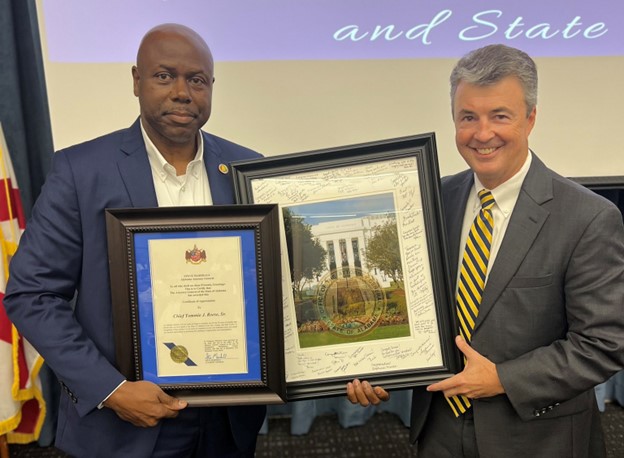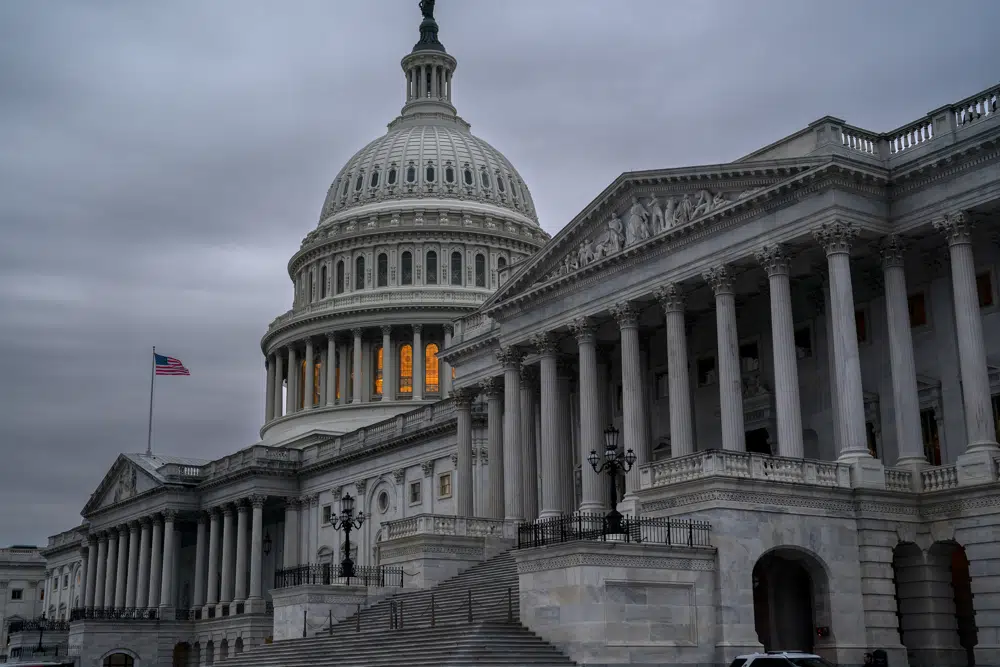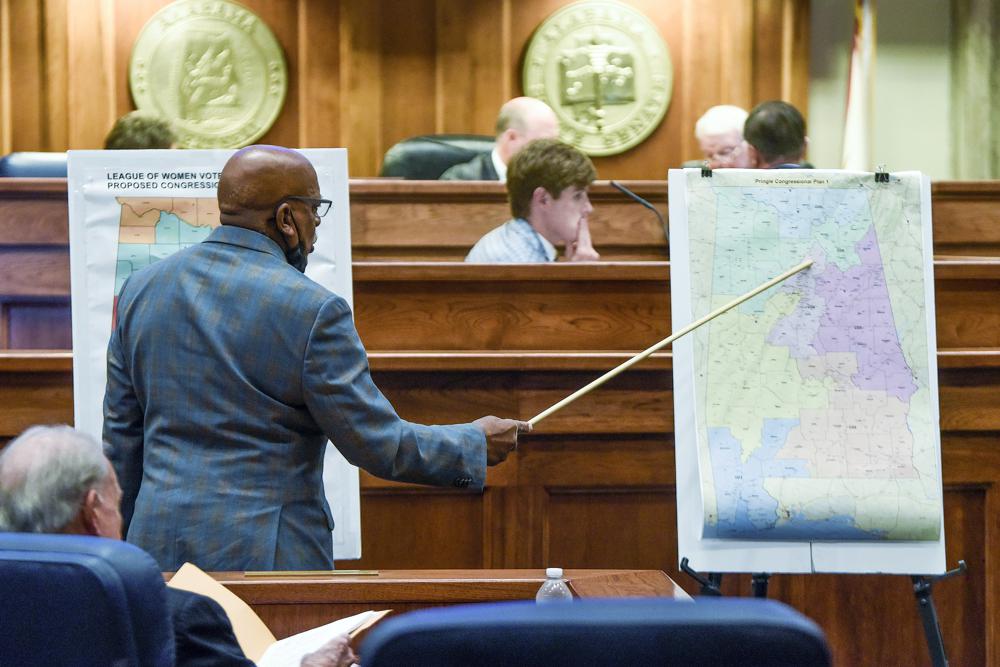Joseph Summers: More competition, not overregulation

With a history in Alabama politics, I feel compelled to address a pressing issue that plagues many American households: the rising cost of prescription drugs. From 2021 to 2022, an astounding 1,216 drugs experienced price increases that were higher than the inflation rate of 8.5 percent for that time period. Affordable access to vital medications should be a given, not a privilege. If we hope to safeguard accessible health care and affordable medications for all, our nation’s lawmakers must embrace the principles of free-market competition that the United States is built on. The pharmaceutical industry is complex, with many players, and the only actors encouraging greater competition and more affordable alternatives to enter the market are pharmacy benefit companies. Unfortunately, pharmacy benefit companies have been opportunistically targeted in Washington, D.C., and some politicians are wrongly pointing the finger at them for high drug prices. Legislation circulating the halls of Capitol Hill would drastically increase regulations on pharmacy benefit companies and prohibit performance-based compensation, all by further extending government intervention in our healthcare system. Casey B. Mulligan, an esteemed American economist and professor at the University of Chicago, recently pointed out that “this policy would significantly change drug pricing and utilization and shift billions of dollars annually from patients and taxpayers to drug manufacturers and retail pharmacy companies. Annual federal spending on Medicare Part D premiums would increase $3 billion to $10 billion-plus any concomitant increase in Medicare subsidies for out-of-pocket expenses.” The slew of myths and misconceptions about pharmacy benefit companies have obfuscated how valuable they truly are and ignore the critical, cost-lowering competition they bring to the pharmaceutical marketplace. Pharmacy benefit companies negotiate discounts on drug prices and then pass those savings on to plan sponsors such as employers, securing savings for millions of Americans. In fact, they help save payers and patients roughly $1,040 per person per year. Pharmacy benefit companies are also integral to the prescription drug market because they act as a check on the massive drug companies that drive up costs and foster competition. One of my fundamental beliefs revolves around the transformative power of competition. It spurs creativity and innovation while expanding the options available to the consumer. If we continue to neglect the central principle of fostering a competitive environment, consumers, and taxpayers – who are already struggling to afford essential goods for themselves and their families – suffer the most. Lawmakers must also be cautious that legislation undermining competition by targeting pharmacy benefit companies does not lead our nation toward a bloated, nationalized healthcare system. Government intervention should be limited and targeted, allowing market forces to work freely and efficiently. Expanding the size of government through heavy-handed regulations will not only stifle innovation, but it will also create unintended consequences such as expensive upfront costs or new taxes. Senator Rand Paul (R-KY) recently sounded the alarm on such misguided proposals, saying, “Like so many misguided policies in Washington, this bill may actually raise drug prices. If that happens, just imagine the outcry for a single-payer healthcare system with government price controls. Maybe that’s exactly what the left is betting on—that if drug companies have free rein, the American people will get fed up fast and demand a socialist paradise.” Targeting pharmacy benefit companies does not address the drug pricing crisis, nor will it solve it. We must resist the urge to crack down on an industry that has proven effective in securing patient savings. By harnessing the power of market forces and prioritizing the well-being and interests of the everyday American, we can prevent rising drug prices and safeguard patient access. Our nation’s leaders should explore reforms that will lower prescription drug prices through competitive forces, without exorbitant upfront costs. Joseph Summers is a former staffer to former United States Senator Richard Shelby and more recently served as Vice-President of Corporate Capture for Radiance Technologies.
AG Steve Marshall announces Jackie Hornsby to serve as office’s Law Enforcement Coordinator after retirement of Tommie Reese

On Monday, Attorney General Steve Marshall announced that long-time law enforcement professional Jackie Hornsby has been appointed as the new Law Enforcement Coordinator for the Alabama Attorney General’s Office. Hornsby will take over the role from Chief Tommie Reese, who will be retiring at the end of the month. Reese has served in the position since January 2019. “Special Agent Hornsby has proven himself to be a knowledgeable and dedicated law enforcement officer over his more than 26 years of service. Jackie’s wealth of knowledge will be a tremendous asset to our office and will contribute immensely to our relationships with other law enforcement agencies,” Marshall said in a press release. “With his understanding of our office’s resources and expertise, Special Agent Hornsby will be a great asset for local and state law enforcement who are facing a variety of new challenges in their communities.” Hornsby will work with law enforcement agencies across the state to develop training programs, notify officers of changes in criminal law, and facilitate communication and cooperation between the Attorney General’s Office and law enforcement statewide. “I have worked closely with General Marshall for many years, and I know and respect his genuine support for law enforcement,” said Special Agent Hornsby. “I am truly honored by the opportunity to continue serving the citizens of Alabama and the men and women of law enforcement as his Law Enforcement Coordinator.” Hornsby is a Pike County native who graduated from Troy University with a Bachelor of Science in Criminal Justice. He began his law enforcement career in 1997 with the Alabama Department of Public Safety as an Alabama State Trooper. After the creation of the Alabama Law Enforcement Agency (ALEA), Hornsby became a Special Agent Senior with the State Bureau of Investigation and later transferred to the Dignitary Protection Unit of ALEA. He has served on the security details of then Lt. Gov. Kay Ivey and Attorney General Luther Strange. Hornsby served on Attorney General Marshall’s security detail since he came into office in 2017 and became Detail Leader in 2019. Marshall commended Reese on his service. “Alabama is a safer state because of the relationships Chief Reese has forged in his 38 years of public service. Thank you, Chief, for your dedication to our men and women in blue. We wish you all the best in retirement,” Marshall said. Thank you, Chief Tommie Reese for your 38 years of service to our great state. It has been an honor and a privilege to have you serve as our law enforcement coordinator for the past five years. You will be missed dearly! pic.twitter.com/4qt6Evwdan — Attorney General Steve Marshall (@AGSteveMarshall) September 25, 2023
Nonprofit group warns of increasing number of overdose deaths

A nonprofit organization’s analysis of government data estimates drug overdose deaths increased 1.7% in 2023 to reach a new record high. The CDC estimates that more than 111,000 Americans died from a drug overdose in the 12-month period that ended in April. More than 77,000 of those deaths involved fentanyl and other synthetic opioids other than methadone. Both are record highs and increases over the prior year, according to Families Against Fentanyl. The Families Against Fentanyl analysis of CDC data found that illicit fentanyl and other synthetic opioid deaths increased 4.9%. The report comes as federal, state and local governments are working to reduce opioid deaths. Oregon had the highest rate of increase in fentanyl deaths in the nation, with a one-year increase of more than 67%, compared to a national average of 4.9%. The state also ranked second highest in the nation for increases in overdose deaths overall, with an increase of 23%, according to the Families Against Fentanyl report. In Washington, overdose deaths increased by over 34%, the highest one-year increase in the nation. Washington also ranked second highest in the nation for increases in fentanyl deaths, with an increase of 65%, according to the Families Against Fentanyl report. Families Against Fentanyl previously asked President Joe Biden to designate illicit fentanyl as a weapon of mass destruction to reduce fentanyl deaths, which have doubled in 30 states in two years. Fentanyl, which is 80 to 100 times more potent than morphine, is used daily in hospitals around the country for everything from epidurals during childbirth to pain management for cancer patients. However, illicit fentanyl is driving the country’s overdose epidemic. Illicit fentanyl is primarily made in foreign labs. It is then smuggled into the United States, most often through Mexico, according to the U.S. Drug Enforcement Administration. Illicit fentanyl is often mixed with other drugs or made into pills made to resemble prescription opioids.
Sylvia Swayne and Travis Hendrix advance to Democratic runoff in House District 55

Democratic voters went to the polls on Tuesday in the House District 55 special Democratic primary, and Travis Hendrix received the most votes. Sylvia Swayne narrowly beat out Phyllis E. Holden-Jones for second place and a spot in the special Democratic primary runoff on October 24. This vacancy in the Alabama House of Representatives was due to the resignation of Rep. Fred Plump (D-Fairfield) after he entered a plea deal in a federal corruption probe that has rocked the Alabama Legislature. Travis Hendrix received 670 votes (27.91%) in this crowded Democratic primary field. Sylvia Swayne had 515 votes (21.45%), earning her a spot in the runoff by just 30 votes. Oden-Jones received 485 votes (20.20%) in her third-place finish. Cara McClure received 364 votes (15.16%). Ves Marable received 180 votes (7.50%). Former Tarrant Mayor Kenneth Coachman received 106 votes (4.41%). Antwon Bernard Womack received 81 votes (3.37%). These are the preliminary vote counts available from the Secretary of State’s office when Alabama Today went to print and are subject to change. The provisional ballots still have to be considered, so the vote totals could change. Hendrix is a former school resource officer. He has the endorsements of Birmingham Mayor Randall Woodfin, House Minority Leader Anthony Daniels (D-Huntsville), the Alabama Forestry Association, and more groups. “I was born and raised in Ensley’s Tuxedo Court Public Housing Community,” Hendrix said on his website. “Today, Tuxedo Terrace housing community stands in place of the old Tuxedo Court, affectionately known as “the Brickyard.” Growing up in this area exposed me to the harsh realities faced by many residents, but it also instilled in me the values of service, sacrifice, and the power of prayer, thanks to the strong influence of my grandmother.” “I pursued my education at Ensley High School and later completed a GED program,” Hendrix continued. “I then attended Miles College and went on to earn my bachelor’s degree. I then furthered my education, and I obtained a master’s degree from Oakland City University. Alongside my educational journey, I take immense pride in being a devoted father, an active member of Kappa Alpha Psi Fraternity, Inc., and a law enforcement officer. I have served as a school resource officer and on a task force dedicated to the public housing community. I take public safety seriously. Throughout my life, I have consistently pushed beyond established standards and exceeded expectations. I firmly believe that District 55 deserves a leader who possesses both the capabilities and the unwavering determination to advocate for change. I am committed to tirelessly fighting until our shared vision for the community is realized.” Swayne was the only white candidate in the crowded primary field and, if elected, would be the only openly trans person to ever be elected in the state of Alabama. Swayne has the support of the LGBTQ+ community, including former State Rep. Patricia Todd. Swayne is extremely popular on TikTok. Swayne is a 2019 graduate of the University of Alabama. “Part of the reason I’m running is this idea that trans people and drag queens and other members of the LGBT community are this threat to society, and that is purely artificially injected into the conversation,” Swayne told Teen Vogue. “Whether or not people support us as trans people is not my concern. My concern is while they’re using the trans community, and the LGBT community at large, to distract all of us, they’re leaving the rest of Alabama behind. We all lose when we engage in divisive politics and pointing fingers at one group while disenfranchising another.” The October 24 Democratic primary runoff will likely decide this race. There was no special Republican primary in HD55, and there was no Republican candidate in the general election. Jefferson County Republican Party Chairman Chris Brown said on Tuesday night at the Jefferson County GOP meeting in Homewood, “We tried to recruit a candidate” and couldn’t. Brown and Republican Minority GOP Chairman Phillip Brown said Tuesday night that they met with a prospective candidate they tried to recruit but failed to convince him to run in the heavily Democratic majority-minority district. They told executive committee members that they are actively looking for a candidate in neighboring House District 52, where the incumbent is John Rogers (D-Birmingham) is 83 years old and “tied up in the same corruption scandal as Plump.” Plump has admitted receiving hundreds of thousands of dollars in community improvement grants for a rec league that he ran from Rogers. Plump admitted then paying roughly half of that money to Rogers’ longtime legislative assistant, Varrie Johnson Kindall, with whom he claims was romantically involved. Ms. Kindall is facing 21 federal indictments for her role in this alleged corruption conspiracy. “We don’t know that there is going to be an opening (in HD52), but we want to be ready if there is,” Chris Brown said. At this point, Rep. Rogers has not been indicted and has denied any wrongdoing. The eventual winner in HD55 will serve for the remainder of Plump’s term and will have to face the voters in 2026 like the rest of the Alabama Legislature. To connect with the author of this story or to comment, email brandonmreporter@gmail.com.
Bryan Brinyark and Brad Cox advance to a runoff in House District 16

Bryan Brinyark and Brad Cox have both advanced to the Republican primary runoff in the House District 16 special election on October 24. Republican voters went to the polls on Tuesday in HD16 to select their State Representative. The seat became vacant when Rep. Kyle South (R-Fayette) resigned to become the President and CEO of the West Alabama Chamber of Commerce. Brinyark had 32.56% of the vote – 1,201 votes. Cox only had 15 votes more (1216 votes) when Alabama Today went to press late on Tuesday night. Greg Fanin received 218 votes (5.91 votes). Greg Lowery was removed from the ballot by the Alabama Republican Party because he ran as a Democrat for probate judge within the last five years. It was too late, however, to remove his name from the ballots which had already gone to the printer. Despite having suspended his campaign, Lowery still got 52 votes (1.41%). Floyd Rodgers Jr. received 320 votes (8.67%). Mike Simpson received 682 votes (18.49%). There were only 3,689 votes cast. These election results are preliminary and may be subject to change. According to his website, “Bryan Brinyark was born and raised in Tuscaloosa County and graduated from Central High School in Tuscaloosa in 1986. He then attended the University of Alabama, graduating with a bachelor’s degree in 1990 and his law degree in 1993. Brinyark has lived in the Samantha/Windham Springs area for 19 years, where he raised his family on a small farm.” “Bryan Brinyark is a devoted family man, a Christian, and a proud member of the Republican Party. He has been a stalwart of the legal profession in Tuscaloosa while also serving his larger community. He is a partner attorney with Brinyark & Frederick, serving clients in West Alabama. As a lawyer, he is passionate about advocating for his clients and upholding the law.” According to Brad Cox’s website, he “Is a seasoned leader with a strong background in agricultural education and community development. As an Agriculture Teacher and FFA Advisor at Fayette County High School, Brad led one of our state’s top-tier ag programs, earning multiple FFA awards and expanding it to include a student livestock exhibition and a school farm. His role as Area 2 Director at the Alabama Farmers Federation allowed him to develop a valuable network in the agricultural and political spheres. Currently, Brad serves as a Business Development Officer at Alabama One Credit Union, where he helps business, land, and agricultural clients while forming partnerships with local, state, and national organizations. Brad also serves as District One Commissioner for the Fayette County Commission. Brad plays a vital role in budget creation, industry recruitment, and ensuring the county’s well-being.” There was no Democratic primary in HD16, as John Underwood was the only Democrat to qualify. Underwood will face the eventual Republican nominee in the January 9 general election. House District 16 includes Fayette County and portions of northern Tuscaloosa County and western Jefferson County. To connect with the author of this story or to comment, email brandonmreporter@gmail.com.
Tommy Tuberville cosponsors the Prevent Government Shutdowns Act

U.S. Senator Tommy Tuberville (R-Alabama) joined Senator James Lankford (R-Oklahoma) in cosponsoring bipartisan legislation titled the Prevent Government Shutdowns Act of 2023. This legislation would take government shutdowns off the table and force Congress to stay in town until the budgets are passed. “Shutdowns don’t accomplish anything,” said Sen. Tuberville. “Where I come from, you stay at work until you get the job done. Congress should be forced to stay in D.C. until we pass a responsible, fiscally conservative budget.” Lankford said that the problem is out-of-control federal spending. “If you go back 20 years ago to 2003, our total spending was just over $2 trillion,” Sen. Lankford said. “If you go back to 2013, ten years ago, our total spending was less than $3.5 trillion. Our spending this year will be right at $6.5 trillion. So, in the past 20 years, our spending has increased from just over $2 trillion to $6.5 trillion. To again set this in context, the revenue that’s coming into the federal Treasury this year is estimated at $4.8 trillion–$4.8 trillion. We’re spending an estimated $6.4 trillion.” “This is not going to be a simple process to be able to come out of,” Lankford continued. “This is not going to be two Administrations in a row making agreements to be able to get back to balance. This is going to take decades. And my concern is, is that many here are not willing to start the first year of decades of work to be able to get us out. So we have work to do on this.” Lankford said that he and Sen. Maggie Hassan (D-New Hampshire) crafted the bill to end future government shutdowns. “So Senator Hassan and I came up with a simple proposal,” Lankford said. “If we get to the end of the fiscal year, and the appropriations work is not done, like it is this year, we stay in session seven days a week, and the only bills that can actually come up that actually can be called up during that time period are appropriations bills. The second part of it is there is no travel for anyone, so we couldn’t fly home and fly back. So, no official or campaign funds could be used to be able to travel. So we’re in session seven days a week. The only bills that are allowed to be brought up are Appropriations bills. There is no travel. And the next part of it is simple. There’s what’s called a Continuing Resolution to maintain the government to be open so that the American people and federal workers are held harmless. It puts the pressure on this room, not on federal workers that are working for FAA, not on people that are working for the Housing Administration, not on our Border Patrol. Those individuals don’t get a vote on this. They should not feel the pressure of a government shutdown.” The Prevent Government Shutdowns Act is supported by the Committee for a Responsible Federal Budget, Council for Citizens Against Government Waste, FreedomWorks, National Taxpayers Union, Americans for Prosperity, America First Policy Institute, and Americans for Tax Reform. The Prevent Government Shutdowns Act would require all Members of Congress to stay in Washington and work until spending bills are completed. The bill would prevent a government-wide shutdown and continue critical services while Congress completes the legally required appropriations process. In addition, under the bill, no other votes would be in order in the House or Senate unless they pertain to the passage of appropriations bills or mandatory quorum calls in the Senate. However, after 30 days under the automatic C.R., certain expiring authorization bills and executive calendar nominations would be eligible for consideration on the Senate floor, including a nomination for a Justice of the Supreme Court or a Cabinet Secretary, and narrow reauthorization legislation for programs operating under an authorization that has already expired or will expire within the next 30 days. These restrictions can be waived by a two-thirds vote in either chamber, but not for longer than seven days. Additionally, the bill provides for expedited consideration of bipartisan funding bills if appropriations have not been enacted 30 days after the start of the fiscal year. This would further incentivize Congress to process bipartisan spending bills and fund the government on time. Congress would not be subject to these restrictions if they pass the necessary legislation but await the President’s signature. However, if the President vetoes any of the funding bills, then the restrictions on congressional travel and floor consideration would be re-imposed. Sen. Katie Britt (R-Alabama) is also a cosponsor of this legislation. There are only three days left in the current fiscal year, and Congress has not passed the budget for the fiscal year that begins at midnight Saturday while Congress is mired in partisan inertia. The Alabama Legislature, by comparison, passed with bipartisan support, and Alabama Governor Kay Ivey signed both of its budgets back in May. The budgets are balanced, and the state is expected to roll a surplus into the fiscal year, which begins on Sunday. The federal budget deficit is bigger than the entire budget during the Clinton years. Tommy Tuberville represents Alabama in the United States Senate and is a member of the Senate Armed Services, Agriculture, Veterans Affairs, and HELP Committees. To connect with the author of this story or to comment, email brandonmreporter@gmail.com.
U.S. Supreme Court denies state request to block court-ordered redistricting

The Hill reported that the U.S. Supreme Court on Tuesday rejected the State of Alabama’s motion to hold the court-ordered redistricting process currently before the three-judge panel. This means that one of the three maps prepared by court-appointed special master, Richard Allen, and his team will be the new congressional maps used moving forward. The special master filed the maps with the court on Monday. Congressmen Barry Moore and Jerry Carl are now both in Carl’s First Congressional District, while Carl’s home county of Mobile will now be split into majority White and majority Black sections going into separate congressional districts – much like Jefferson County has been for decades. The new Second Congressional District, the new “opportunity district,” will include the eastern half of the Black Belt, the northern portion of the Wiregrass, the City of Montgomery, a vast swath of rural Alabama stretching from the Georgia line to the Mississippi line south to include most of the City of Mobile. No incumbent presently lives in the new Second District, so it is likely to be an open seat. The exact boundary lines will be selected by the three-judge panel in a hearing tentatively set for October 3 -just days ahead of major party qualifying for the 2024 elections. The special master wrote in his court filing on Monday: “Pursuant to the Court’s September 5, 2023, preliminary injunction order and instructions, the Special Master is filing three proposed remedial plans for Alabama’s U.S. congressional map, attached to this Report and Recommendation as Exhibits 1-3. Per the Court’s instructions, each proposed plan remedies the likely violation of Section Two of the Voting Rights Act identified in the Court’s preliminary injunction order. Each proposed plan also complies with the U.S. Constitution and the Voting Rights Act; adheres to the one-person, one-vote requirement; and respects traditional redistricting principles, including compactness, contiguity, respect for political subdivisions, and maintenance of communities of interest. Per the Court’s instructions, this Report and Recommendation details the choices made to arrive at each proposed plan, the differences between and among the proposed plans, and why each plan remedies the likely vote dilution found by the Court.” The three-judge panel had ruled that the map drawn by the State Legislature in a July special session both violated the Voting Rights Act of 1965 and defied the court’s order to draw a new map with two majority-minority districts “or something close to it.” The three maps prepared by the special master vary between 48.7% Black voters and 51.1% Black voters. In addition to the directions given by the court, the special master made an effort to follow much the same lines as the Legislature’s July map. Most of the changes are to congressional districts one and two. The newly drawn Second Congressional District will be an open seat and will likely be won by the Democratic Party nominee if general election voters behave much as they have in the previous elections. The Alabama Attorney General’s Office is expected to continue its appeal, but Tuesday’s refusal to stay the hold on the redistricting is an indicator that the court, much like the three-judge panel earlier, is skeptical of the state’s chance to prevail. The court has already ruled against the state in June. Even if the court were ultimately to rule in Alabama’s favor, that ruling would likely arrive too late to impact the 2024 election. Candidate qualifying for the March 5 Republican and Democratic Party primaries will open next month. To connect with the author of this story or to comment, email brandonmreporter@gmail.com.
Steve Flowers: Roads vital and political for Alabama

Roads and bridges have been vital to Alabama since its creation. This is probably true of most states; however, it has been especially true for Alabama for several reasons. First of all, we are a large state geographically. Most metropolitan areas are a good many miles from the State Capitol in Montgomery. It is a long journey for folks from Huntsville, Mobile, and even Birmingham metro, and if you go from one end of the state from Scottsboro to Dothan or Huntsville to Mobile, you have been on a really long journey. We also have a lot of water in Alabama, including lakes and creeks, besides the major rivers that traverse our state. Therefore, that is why I included bridges in my opening sentence. Bridges are a necessity in our state more so than in other states. We also have a major Port in Mobile that needs to be sustained along with roads and bridges. It is an acknowledged fact that having adequate roads is a major factor when it comes to economic growth and development in a state. Every economic developer will attest to this road factor. Roads and education are the primary components to economic growth for a state. Therefore, roads have been a primary campaign theme and criteria of accomplishment for every governor as long as I can remember. It is and has been the most important factor in determining whether a governor has a legacy. It is something they can point to and hang their hat on. Going back the last 60 to 70 years, there have been only three or four governors who have what I call a real legacy, and one of the primary benchmarks for creating a legacy is roads. John Patterson had a road legacy by virtue of the fact that he was governor during the Dwight Eisenhower Federal Interstate Act. This Interstate Act, created by President Eisenhower, is one of the most important presidential acts in history. In fact, most of the growth in the state and most of the population lives along I-65, which traverses the state and includes Huntsville, Birmingham, Montgomery, and Mobile. George Wallace has numerous legacies, but if you knew him, roads were his number one priority. Wallace was also the most brilliant, accomplished, successful political governor in state history, and I stress the word political, so Wallace played politics when it came to roads. As the ultimate political animal in Alabama’s political history, you would expect nothing less. Wallace lived by the political adage you reward your friends and punish your enemies. One slow news day, Wallace held a press conference, and a young, liberal, muckraking, Birmingham news reporter asked the Governor, “Why do you give all the road projects in the state to your contributors, friends, and cronies?” Wallace looked at the young boy incredulously and said, “Who do you think I ought to give them to, my enemies?” The two political legends of my lifetime were George Wallace and Big Jim Folsom. They were elected governor by the rural and smaller, midsize cities and counties in the state. They neither ever carried the metropolitan counties of Jefferson, Madison, and Montgomery. Therefore, these metro areas never received their rightful share of road dollars, especially under Wallace. I have been asked over the years is it true the Birmingham area was the last metro area to get interstates completed because Wallace refused to appropriate any state funds to Birmingham to match the federal dollars needed for completion because they voted against him. My answer is short. The answer is yes. Wallace would acknowledge that to close friends and political allies. The Governor who has the greatest legacy for roads in my lifetime and maybe history is the legendary Big Jim Folsom. Most of the rural roads in the state were built by Big Jim Folsom’s “Farm to Market” road program. In Big Jim’s era, the state was agriculturally oriented. Almost everybody farmed and had crops they needed to get to the market. Most of the roads in the rural areas were dirt roads. If the rain came early, the roads would turn to mud and would be impassable. Therefore, the poor Alabama farmer who had toiled all year to make a crop could not get his produce to market. His year’s work was ruined by poor roads. Big Jim, who was the little man’s big friend, knew this and he fixed it by paving most of the rural roads. Big Jim has one of the most endearing legacies of any Alabama governor because of his “Farm to Market” road program. See you next week. Steve Flowers is Alabama’s leading political columnist. His weekly column appears in over 60 Alabama newspapers. Steve served 16 years in the state legislature. Steve may be reached at www.steveflowers.us.
Nathaniel Ledbetter supports decision to lease a new Alabama State House

On Tuesday, Alabama Speaker of the House Nathaniel Ledbetter (R-Rainsville) released a statement supporting a controversial decision by the Legislative Council to agree to lease a new Retirement Systems of Alabama (RSA) owned statehouse for the legislators. “The significant challenges with the current Alabama State House, ranging from black mold to chronic flooding to outdated electrical systems and countless others, have been well documented by the media and experienced by everyone who utilizes the building,” Ledbetter said in a statement. “Just like the cost of repairing an old, outdated automobile eventually exceeds its value at some point, the Legislative Council has determined that the significant funding necessary to update the dilapidated Alabama State House would be better spent by investing in a new one.” The decision to do a lease build agreement with RSA instead of building a new statehouse has been criticized even by some Legislators. Ledbetter supports the decision to sign a lease-to-own agreement with the RSA. “Because of sky-high interest rates, entering into a lease-to-own agreement and allowing the Retirement Systems of Alabama to manage the construction component of this project offers the most common-sense fiscal option for taxpayers,” Ledbetter claimed. Ledbetter insisted that the public will benefit from larger committee rooms and greater public access to the building. “A new State House will provide much-needed public access and adequate space for Alabama’s press—allowing more opportunities for Alabamians to attend legislative meetings, have input in important debates, and let their voices be heard on the issues that matter to them most,” Ledbetter said. The current Alabama State House was built 60 years ago as the Alabama Highway Department Building. Originally, the Legislature met in the historic 1859 Capital Building. There are chambers for both the House and the Senate there, as well as committee rooms. In the mid-1980s, the historic facility needed to be renovated. Ostensibly to prepare for the lengthy repairs to the Capitol Building, the old Highway Department Building was transformed into a statehouse with Senate chambers on the Seventh floor and the House chambers on the fifth floor. The Legislature – now with vastly improved office space – never moved back to the Capitol Building. They like the Supreme Court, like having their own building. The Alabama State House has not aged well, and the periodic mold and flooding issues combined with the cramped committee rooms have made the day-to-day operations of the aging facility difficult at times. Critics of the method that this is being financed argue that it will cost far more in the long run to lease-to-own than if the Legislature had simply built the building by cutting state budgets and paying for it with cash. To connect with the author of this story or to comment, email brandonmreporter@gmail.com
Gov. Kay Ivey announces a major tax reform measure to benefit small businesses

On Tuesday, Alabama Governor Kay Ivey announced the implementation of a major tax reform initiative intended to help Alabama small businesses. Effective October 1, 2023, more than 3,000 Alabama small businesses will no longer be required by the state to pay monthly estimated sales taxes to the state Department of Revenue. “Alabama’s economy is anchored in the stability and prosperity of many thousands of hard-working small businesses,” said Gov. Ivey. “In my 2023 State of the State Address, I called on the Legislature to help lower the financial load shouldered by most small businesses, making it easier for them to thrive in a challenging national economy.” The Legislature responded to the governor’s call by passing legislation, which Governor Ivey signed into law on June 9, 2023. The new law removes the monthly estimated sales tax requirement for businesses with less than $20,000 in average monthly sales tax liability – most Mom and Pop single proprietorships. “I am pleased to report that this small business tax reform law, which will take effect October 1, is expected to positively affect over 3,000 Alabama small businesses,” said Ivey. “By freeing small businesses with less than $500,000 in monthly sales from having to pay estimated monthly sales taxes and allowing them to pay the taxes after the point of sale, they will experience greater cash flow and accordingly more flexibility to operate.” As of October 1, 2023, affected small businesses will be required to pay sales taxes based on the previous month’s sales tax receipts, payable in monthly installments on or before the 20th of the month rather than paying the sales taxes before they collect them as they have been required to do for years. According to the Alabama Department of Revenue, businesses’ monthly sales tax returns for calendar year 2022 will be reviewed to identify those affected by the new law. Those affected by the change in threshold will be notified by letter. Businesses may contact the Alabama Department of Revenue’s Sales Tax Administration Section for more information. House Bill 77 was sponsored by State Representative Danny Garrett (R-Trussville). In recent sessions, the Legislature has also gotten rid of the business privilege tax and the business property tax for small businesses. This is part of a bipartisan effort by Gov. Ivey and the Legislature to make the state tax code more friendly for small and beginning businesses. To connect with the author of this story or to comment, email brandonmreporter@gmail.com.


